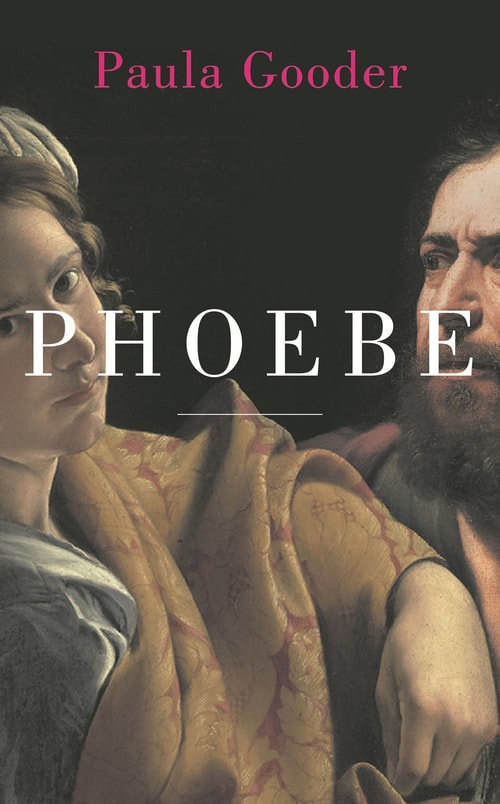Graham Hedges, Secretary of Christians in Library and Information Services, reviews Paula Gooder's first work of fiction, Phoebe.
Paula is well known as a New Testament scholar and as a populariser of Christian theology and biblical studies. In Phoebe she adopts a new role as a writer of Christian fiction in an attempt to bring to life some of the characters and situations mentioned in the biblical text.
The central character, Phoebe, is mentioned in Romans 16:1 – 2 as a deacon in the church of Cenchreae (a town a few miles from Corinth) and as a benefactor or patron. Basing her storyline on the knowledge that Phoebe was a name most commonly given to slaves in the ancient world, Paula theorises that the biblical Phoebe began her life as a slave but was later given her freedom and became a wealthy woman through marriage before using her newly acquired wealth in the service of the infant church.
Paula records that Phoebe was entrusted with the tasks of carrying St. Paul’s letter to the Romans to the Christian community in Rome and making preparations for the apostle’s intended visit to Spain, as mentioned in Romans 15:23 – 24. The author adds the fictional detail that Phoebe also planned to search for her lost daughter, born as the result of sexual abuse by a cruel master and taken from her at birth during her early life as a slave.
As the narrative unfolds, Phoebe meets many of the characters, real and imagined, who would have made up the early Christian community in Rome, among them the missionary couple Prisca and Aquila and the apostle Peter himself, during one of his visits to the capital city. The book gives a vivid impression of what it must have been like to be a follower of Jesus in the middle decades of the first century, at a time when the gospel was making inroads into Roman society but was beginning to attract the hostile attention of the upper echelons of the Roman state.
One of the problems of so-called ‘Christian fiction’ is that the storyline, and the creation of convincing characters, can become subordinate to preaching a message to the reader. Paula manages to avoid this problem for most of the time, although a long discussion on the theme of forgiveness may seem a little contrived to some readers. On the other hand, I was a little surprised that there is not more discussion of the actual contents of Paul’s letter to the Romans.
Despite the emphasis on St. Paul, the reader is also reminded of the life and ministry of Jesus, with recollections of his teachings and miracles from various characters including the apostle Peter. I was a little disappointed that Paul himself does not appear directly in the narrative, although by the end of the book he is in Rome and under house arrest as narrated in Acts 28:17 – 31. Various characters record their impressions of Paul, however, and illustrate the ways in which he was a controversial figure in the early church, loved and disliked in equal measure, just as he is today.
Surprisingly, Paula states that her book is not a novel since she is not a novelist but a biblical scholar. In keeping with her main profession, she provides 85 pages of notes which provide the historical background to the story and explain some of the choices she has made in developing the storyline. There are interesting sections on the role of the imagination in reading the biblical text, as well as on such topics as slavery in the ancient world and the role of women in the early church.
On this last-mentioned topic, Paula provides a counterweight to the popular assumption that St. Paul was a misogynist and that women held a subservient position in the Pauline churches. In addition to stressing Phoebe’s role as a deacon in the church of Cenchreae, the author draws attention to the person of Junia (probably a woman’s name although this is disputed), who is described as ‘prominent among the apostles’ in Romans 16:7.
Although this is a work of fiction, Paula is too diligent a scholar to indulge in too many flights of fantasy, and we are left to speculate what happened when Paul finally appeared before the emperor and whether he achieved his ambition of taking the gospel to Spain. As the book ends, however, several of the characters are leaving Rome for Spain, just as the Great Fire of Rome is breaking out, in the belief that Paul will shortly be able to join them.
I very much enjoyed reading Paula’s novel (despite the author’s disclaimer that her book is no such thing) and would recommend it to anyone keen to read between the lines of the New Testament and recapture what it must have been like to be a Christian in the church’s early years.

Paula Gooder's Phoebe: let your imagination run loose
Naomi Osinnowo talks to Paula Gooder about her first work of fiction, Phoebe


